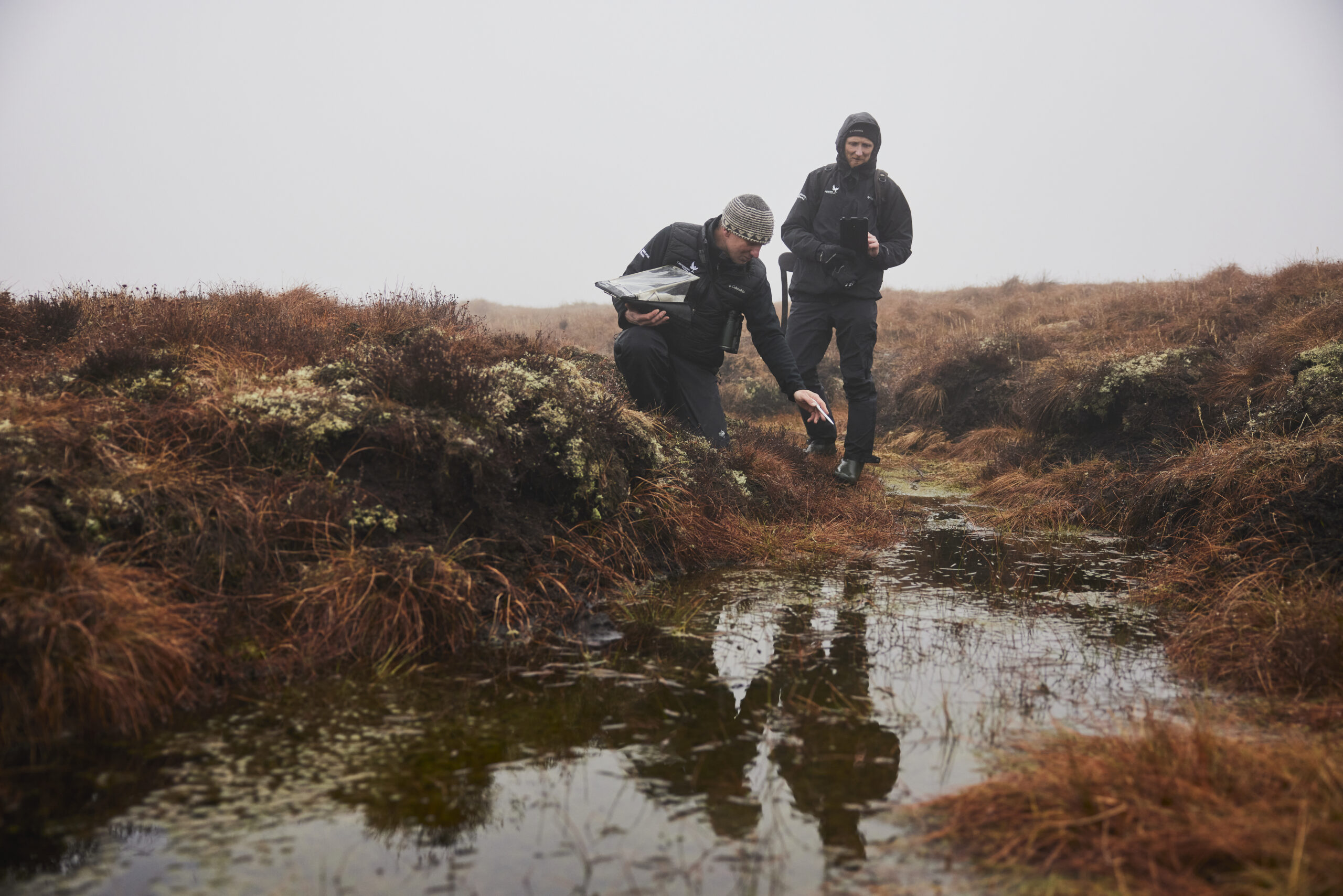It was always going to be a difficult COP. Boris Johnson set the scene by promising a focus on “coal, cars, cash and trees”. After the G20 leaders’ summit, he declared that he was “cautiously optimistic” about a deal at COP-26 to keep global temperature rises below 1.5°C.
With many viewing Glasgow as the last chance to set us on the right trajectory, the eyes of the world were upon global leaders, private sector and civil society as they gathered in Scotland.
Our team at Revere, a partnership between National Parks UK and global impact firm Palladium, participated in several events in and around Glasgow, discussing the role that Revere’s nature restoration facility can play in supporting net-zero through private finance. This included exhibiting at Global Ethical Finance Initiative’s “Finance For Nature in Nature” event at Loch Lomond and participating in a high profile panel event in Accenture’s COP-26 hub.
Beyond these appearances, we followed COP-26 developments closely. Our overall take? We didn’t see enough near time action and outcomes, and while the overall Declaration contains some important developments, it doesn’t go far enough. Meanwhile, major side and industry agreements demonstrate the increasing role of private sector in delivering on climate action. Here’s a roundup of our main takeaways:
1. Nature takes centre stage
Firstly, signalling an important evolution of climate change dialogue, nature was positioned at the centre of the agenda. The prevalent narrative shows a growing recognition that it is impossible for us to meet 1.5°C without both reducing emissions from ecosystem degradation and sequestering carbon through ecosystem restoration.
2. New voluntary initiatives have promise – but need to be delivered
The first week of COP-26 delivered a string of announcements, notably, the Glasgow Leaders’ Declaration on Forests and Land Use. The Declaration commits 140 world leaders (including Brazil and Russia) to work together to halt and reverse forest loss and land degradation. Collectively, these signatories account for more than 90% of the world’s forests. The declaration is supported by a $12 billion Global Forest Finance Pledge (GFFP). Whilst an exciting development, it’s important to note the Declaration is voluntary and only time will tell if these commitments turn to action.
In other developments, almost 100 countries agreed to slash methane emissions by 30% by 2030, and 450 global banks, insurers and asset managers holding a combined $130tn of capital committed to reaching net zero by 2050 under the Glasgow Financial Alliance for Net Zero (GFANZ). Industry-led coalitions such as GFANZ show the increasingly important role of private sector in accelerating change.
3. The UK lays its cards on the table
Domestically, the UK announced its ambition to become the world’s first Net Zero-aligned Financial Centre. This means UK financial institutions would have a robust firm-level transition plan setting out how they will decarbonise in support of the UK’s legally binding net zero targets.
Led by the UK National Parks, an international statement was signed by some of the world’s largest organisations of protected landscapes, setting out a shared pathway for their role in fighting climate change and biodiversity loss.
The UK is also the first G20 country to commit to making climate reporting aligned with the Task Force on Climate-Related Financial Disclosures (TCFD) recommendations mandatory. These regulations for the largest businesses were laid out on 28th October 2021, with rules set to come into force for accounting periods starting on or after 6th April 2022.
The UK’s Environment Bill also became enshrined in law. Key inclusions in the Bill are a target to halt
the decline of nature by 2030 and a Biodiversity Net Gain mechanism to ensure new developments deliver at least 10% increase in biodiversity.
4. The main Declaration gets over the line – but is far from perfect
In a first for a UN climate agreement, the Glasgow Climate Pact negotiated by the end of COP26 urged countries to phase down coal and fossil fuel subsidies. But it did not ask countries to completely phase them out. Via a new agreement to rachet up ambitions, countries will have to submit more ambitious commitments by the end of 2022, and each year thereon.
After 6 years of negotiation, the rules for trading carbon between signatory countries were agreed under Article 6. Article 6 sets out a framework for carbon trading and corresponding adjustments, as well as determining that the market will be governed by a UN body. Transactions will be subject to several taxes, one of which will channel money into an adaption fund.
However, the devil is in the detail and many aspects still need to be finalised, in particular, a lack of clarity around reducing emissions from deforestation and forest degradation.
A further ambiguity remains around how this will align with private sector led developments. For example, the voluntary market has already gone ahead under the Taskforce on Scaling Voluntary Carbon Markets and are setting up their own governance body.
5. 1.5°C is still possible – but only with rapidly accelerated, coordinated action
If fully implemented, the pledges coming out of COP-26 look set to limit temperature rises to between 1.8°C and 2.4°C. More needs to be done if we stand a chance of limiting global warming to 1.5°C above pre-industrial times, but it’s not fully out of reach – yet.
What’s clear is that we cannot stand by and wait for government commitments and funding alone. Innovative solutions and new ways of working are required across government, private sector and within communities are required. And we need to work together.
According to Naomi Conway, Development Director at National Parks Partnerships, “COP-26 offers some hope that 1.5 degrees is still in reach. I’m also encouraged by the positive feedback we received on Revere though our participation in several side events and forums.”
Tom Gegg, Technical Lead at Palladium said, “The outcomes from COP-26 demonstrate the need for facilities like Revere to accelerate action. In our first year we have shown that private finance is ready and willing to support nature restoration in the UK’s National Parks. Now we need to show that we can deliver this restoration work at the massive pace and scale needed to turn the UK’s land use sector from a net source of emissions into a carbon sink. 2022 will be an exciting year!”










